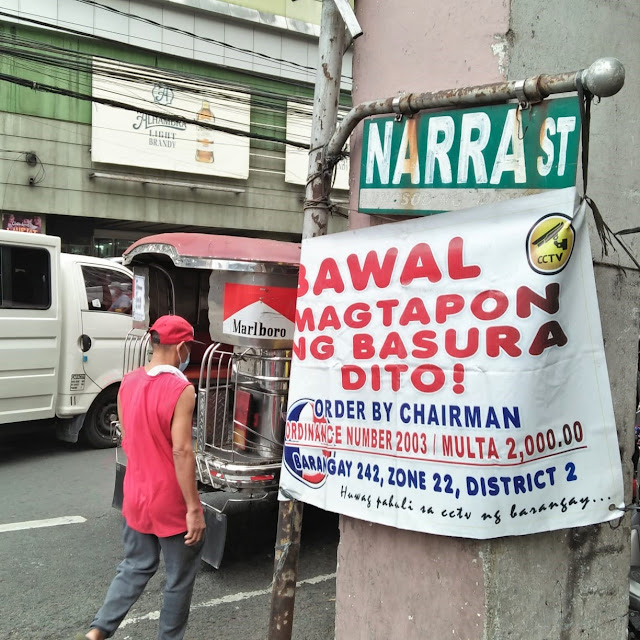EcoWaste Coalition Pushes Candidates to Incorporate RA 9003 into Their Campaign Strategies and Platforms
As the observance of the Zero Waste Month enters its final week, an environmental organization appealed to national and local candidates for the May 9 polls to incorporate Republic Act 9003 into their campaign strategies and platforms.
Known as the Ecological Solid Waste Management Act, the law approved on January 26, 2000 sets the policy and institutional framework for managing solid waste in an ecological, comprehensive and systematic manner that will “ensure the protection of public health and environment.”
“The campaign period provides candidates for the more than 18,000 national and local elective posts many opportunities to show their commitment to protecting the environment, which we believe should be a priority for the May 9 polls and beyond,” said Jove Benosa, Zero Waste Campaigner, EcoWaste Coalition.
“Implementing RA 9003 during the actual campaign and including it on the candidate and party platforms is a concrete way for candidates to manifest their concern to environmental threats facing our citizens and communities,” he said.
During the actual campaign, the EcoWaste Coalition urges candidates to reduce the generation of garbage and prevent the littering, dumping and open burning of waste from caravans, sorties and rallies, noting that these polluting acts are prohibited under RA 9003.
On their campaign platforms, the EcoWaste Coalition calls on candidates to signify their support for the adoption of best environmental practices in ecological solid waste management sans incineration in accordance with RA 9003.
The group also pushes for candidates’ support to the prohibition on single-use plastics and other non-environmentally acceptable products and packaging materials, the ban on the importation of plastic, hazardous and toxic wastes, the reversal of policy shift favoring waste-to-energy incineration, the ban on the construction of landfills or any disposal facilities on aquifer, groundwater reservoir or watershed area, and the rehabilitation of closed dumpsites, etc.
In the face of dire warnings from scientists and activists on the far-reaching effects of the climate and plastic crisis, the EcoWaste Coalition urges candidates to articulate through their campaign platforms, speeches, interviews and social media posts their understanding of the problems and their corresponding solutions.
“Candidates for all elective offices are expected to address issues affecting human health and the environment. For instance, we want to know where they stand on the plastic pollution crisis. We, the electorate, have the right to know,” Benosa emphasized.
“As recycling alone would not solve the plastic and microplastic pollution that is already contaminating the ocean and the food chain, we want to hear from candidates their takes on real solutions, including curbing non-essential uses of plastics, banning the use of hazardous chemical additives in plastic production, and imposing extended producer responsibility,” said Benosa.
Proclamation 760 issued in 2014 declares January of every year as Zero Waste Month.
Zero waste, according to the said presidential issuance, “is an advocacy that promotes designing and managing products and processes to systematically avoid and eliminate the volume and toxicity of waste and materials, to conserve and recover all resources, and not indiscriminately dispose or burn them.”
References:






Comments